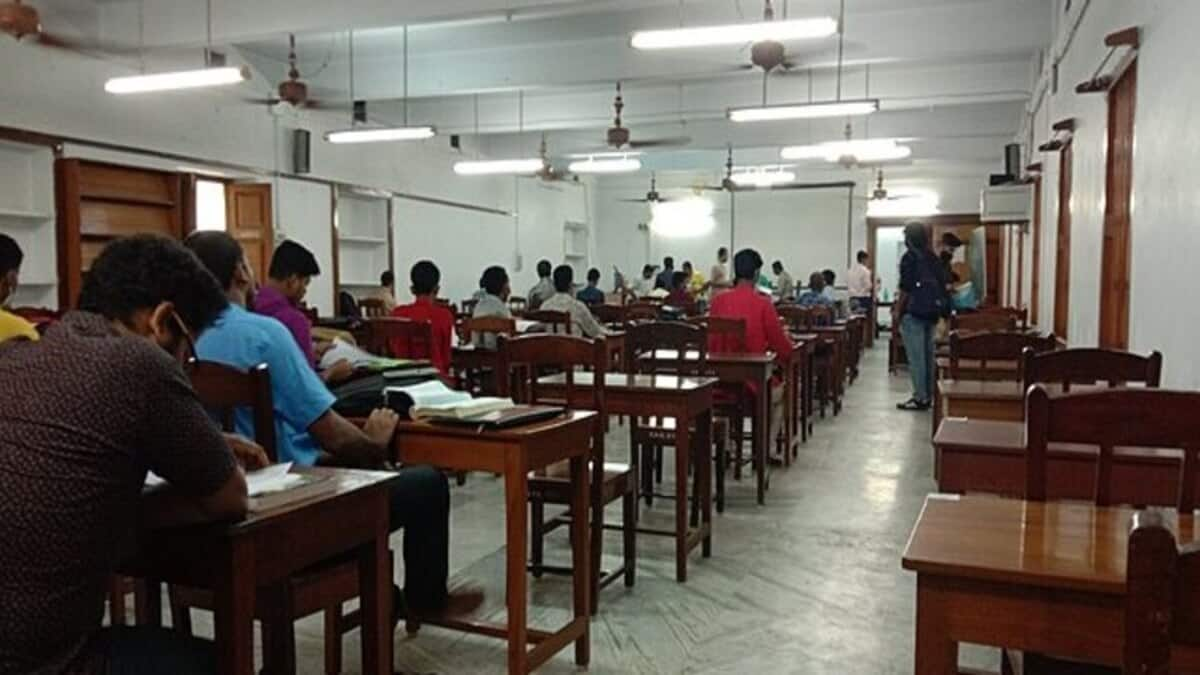SSC ends ‘Own Scribe’ facility for PwBD candidates; adopts DEPwD guidelines
Vikas Kumar Pandit | September 3, 2025 | 05:13 PM IST | 3 mins read
The revised framework mandates a vetted scribe pool within two years. It also promotes assistive technologies and sets uniform rules on eligibility, interaction, and support systems for candidates with benchmark disabilities.

The Staff Selection Commission (SSC) has revised its scribe policy for Persons with Benchmark Disabilities (PwBD) appearing in competitive exams. In line with the Department of Empowerment of Persons with Disabilities (DEPwD) guidelines, the SSC has decided to discontinue the long-standing “own scribe” facility.
The revised scribe framework, applicable to all SSC exams, including those for which application submissions have already closed. The decision aims to strengthen fairness and transparency in competitive examinations.
“It is also informed that this will be applicable to all the examinations of the Commission being held after the date of issue of this Notice. This is also applicable to the examinations that are to be held henceforth, for which the submission of application forms has been concluded,” the official notice said.
Two-year deadline to build scribe pool
According to DEPwD guidelines, candidates who rely on scribes for assistance due to functional limitations in writing will now be encouraged to use technological aids wherever feasible. These aids include software-enabled laptops or desktops, Braille or large-print formats, and recording devices.
The guidelines further state that the commission has been given a strict timeline of two years to establish a comprehensive pool of qualified scribes for all examinations. The “own scribe” option may be temporarily permitted only if a candidate opts against using technology and no Commission-provided scribe is available, or until the two-year window lapses—whichever comes first.
“The own scribe' provision may be allowed, as a last resort, until the 'pool of scribes' is ready for applicants who do not opt for the use of technology, or until the lapse of two years, as specified above, whichever is earlier,” the guidelines said.
Disability categories exempted from extra certification
The guidelines also set out who can serve as a scribe. For recruitment exams in central government services, including SSC CGL, UPSC and NDA, a scribe should have an academic qualification two to three years lower than the minimum required for the candidate. This is meant to make sure the scribe can provide support without affecting the fairness of the exam.
Candidates with specific disabilities—including blindness, cerebral palsy, and locomotor disabilities affecting both arms—can obtain scribe assistance without additional medical certification. For other categories, a functional limitation certificate issued by a competent medical authority is required to access scribe services.
The guidelines also emphasise that candidates can meet their assigned scribe for a 20-minute interaction session before the exam and, in exceptional cases, can request a change of scribe due to language or other barriers.
Accessible examination centres
The SSC and other examining bodies are also instructed to maintain accessible examination centres, providing barrier-free entry, ramps, lifts, accessible seating, quiet rooms for candidates with chronic conditions or neurodiverse needs, and trained staff familiar with disability etiquette.
Candidates with functional writing limitations will now receive at least 20 minutes of additional time for every hour of examination, whether they use a scribe or assistive technology.
The change is intended to create consistent conditions across all exam centres and address concerns about malpractice or collusion with privately arranged scribes, which have been noted by government authorities.
The guidelines also direct examination bodies to provide regular training for invigilators, staff handling complaints, and personnel assisting PwBD candidates to ensure the rules are implemented correctly.
Follow us for the latest education news on colleges and universities, admission, courses, exams, research, education policies, study abroad and more..
To get in touch, write to us at news@careers360.com.